Detailed introduction of Daugavpils University:
Introduction and Overview
Daugavpils University is located in Daugavpils, southeastern Latvia. It is a well-known public comprehensive university in the country and the second largest traditional university in Latvia. It currently has about 3,200 students and offers bachelor's, master's and doctoral degree programs.
History and Establishment
The school was established in 1921, renamed Daugavpils State Pedagogical College in 1923, Daugavpils Pedagogical College in 1952, and obtained university qualifications in 1993. On October 13, 2001, it was finally named Daugavpils University.
School Strength
Faculty: It has a team of highly qualified teachers who have rich teaching and scientific research experience in their respective professional fields and can provide students with high-quality education and guidance.
Teaching facilities: The school is equipped with modern teaching facilities and laboratories, such as libraries, computer centers, science laboratories, art studios, etc., to meet the teaching and research needs of different disciplines and create a good learning environment for students.
Scientific research results: In-depth research has been carried out in multiple disciplines and a series of influential scientific research results have been achieved. The school encourages teachers and students to actively participate in scientific research projects, improve scientific research levels, promote academic development, and establish cooperative relations with many research institutions and enterprises at home and abroad to promote the transformation and application of scientific research results.
Institutional nature
Daugavpils University is a public university.
Educational philosophy
Focus on cultivating students' innovative thinking and practical ability, emphasizing the combination of theoretical knowledge and practical application, so that students can quickly adapt to the needs of society and the workplace after graduation.
We are committed to providing a diversified educational environment, respecting students' individual differences, encouraging students to develop their own strengths and interests, and cultivating students' comprehensive qualities and social responsibility.
Key laboratories and disciplines
Key disciplines: Linguistics, history, biology, environmental science, physics, economics, sociology, psychology, education, art and other disciplines are the school's advantageous disciplines, with a high level and influence in teaching and scientific research.
Key laboratories: There are Lithuanian Studies Center, Russian Language and Culture Center, Oral History Center, Regional German and National Research Center, Guntis Liberts Innovative Microscope Center, Ecological Research Institute, System Biology Research Institute, etc. These laboratories and research centers provide important support for scientific research and teaching in related disciplines, and help improve students' practical operation ability and scientific research level.
Department
School of Humanities: including the Department of English Linguistics and Translation, the Department of Russian Linguistics, the Department of Latvian Literature and Culture, the Department of Latvian Language, the Department of Foreign Languages, and the Department of History.
School of Social Sciences: including the Department of Economics and Sociology, the Department of Social Psychology, and the Department of Law.
School of Natural Sciences and Mathematics: including the Department of Information Science, the Department of Physics, the Department of Mathematics, the Department of Chemistry and Geography, and the Department of Anatomy and Physiology.
School of Music and Art: including the Department of Music.
School of Education and Management: including the Department of Education and Teaching Psychology, and the Department of Physical Education.
Ranking
There is no specific ranking of the school in the world comprehensive university rankings, but it has a certain reputation and influence among universities in Eastern Europe and Central Asia, and some of its disciplines also perform well in professional rankings.
Expenses
The tuition fees for undergraduate and master's degrees range from about 2000 to 5000 euros per year, and the specific fees may vary depending on the major and course.
Campus
Campus location: Located in Daugavpils, an important city in southeastern Latvia, bordering the Russian Federation, with a superior geographical location and convenient transportation.
Campus environment: The campus has complete teaching, scientific research and living facilities, including teaching buildings, libraries, laboratories, student dormitories, restaurants, etc., providing students with good learning and living conditions. In addition, the school also pays attention to campus cultural construction, organizes various cultural activities and academic lectures, enriches students' extracurricular life, and creates a strong academic atmosphere.
-

Riga Technical University
-

Riga Stradins University
-

Baltic International Academy
-
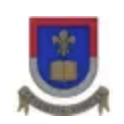
Daugavpils University
-
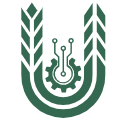
Latvia University of Life Sciences and Technologies
-

Latvian Maritime Academy
-
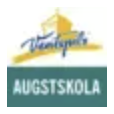
Ventspils University of Applied Sciences
-

Vidzeme University of Applied Sciences
-
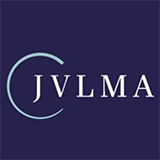
Jazepa Vitola Latvian Academy of Music
-
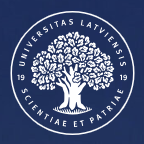
University of Latvia
-

Mesoamerican University
-

Istmo University
-

Mariano Galvez University of Guatemala
-

Regional University of Guatemala
-

Galileo University
-

Francisco Marroquín University
-

Rafael Landívar University
-

University of the Valley of Guatemala
-

University of San Carlos of Guatemala
-

Technological Institute of Tlaxcala Plateau
-

Golfo University
-

Technological University of South Sonora
-

Technological University of Huejotzingo
-

Tizimín Institute of Technology
-

Chilpancingo Institute of Technology
